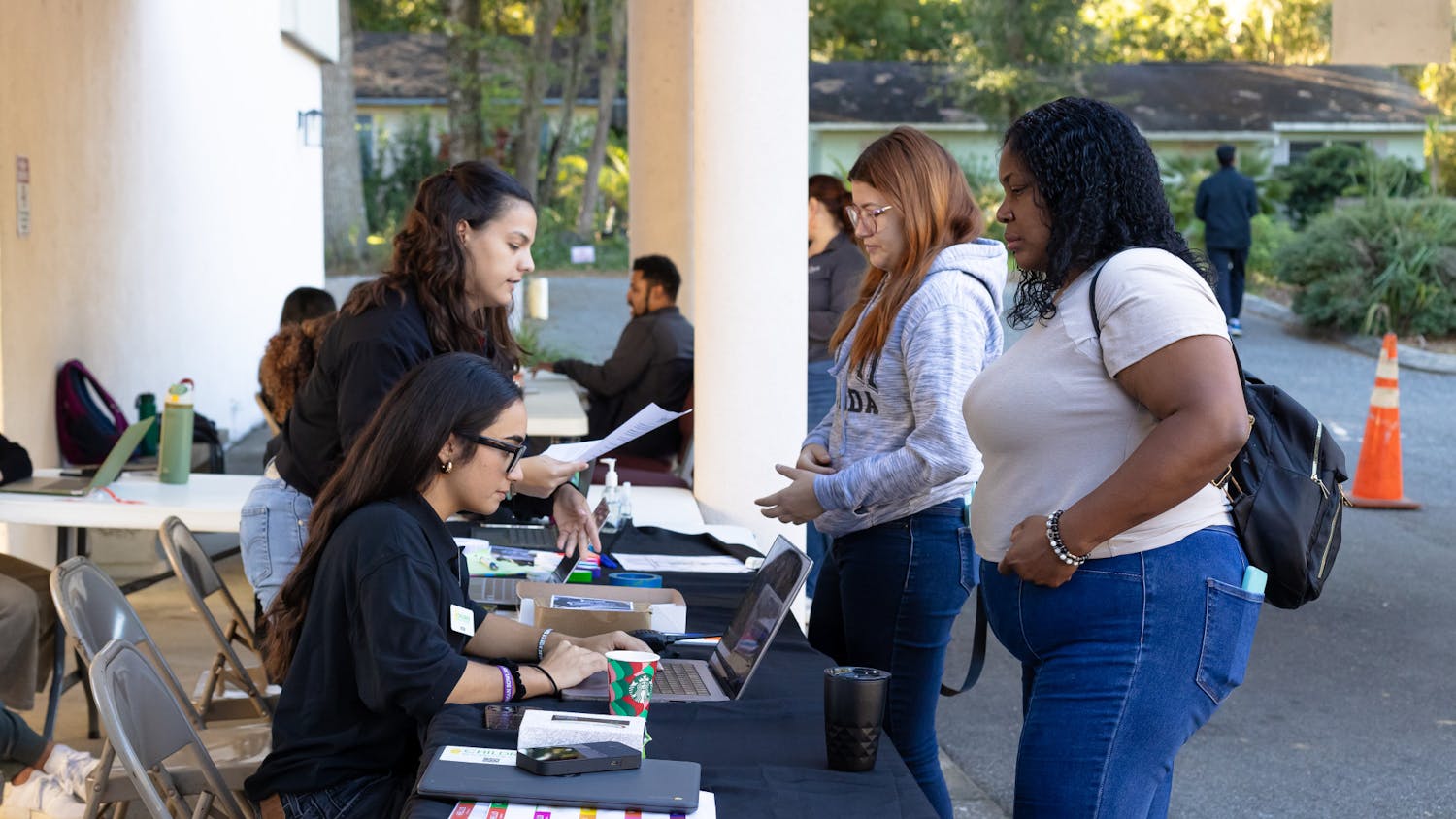Vanessa Pineda's heartbeat rises when the phone rings with a call from Colombia.
Before Pineda, a fourth-year environmental engineering major, was born, her grandfather Erin Delgado was kidnapped by National Liberation Army, known as ELN.
ELN is one of the two largest anti-government insurgent groups in Colombia, according to the Central Intelligence Agency's World Factbook. The other is Revolutionary Armed Forces of Colombia, or FARC, which protesteres demonstrated against Monday around the world.
Her grandfather, a cattle farmer in the municipality of Casanare, was held hostage for three months, at which time ELN commanders agreed to release him in exchange for another family member.
One of Pineda's 10 uncles volunteered. He was kidnapped for a year and then released, she said.
Guerilla groups were first formed with a purpose of defending the common people, who they felt were not being protected by the government, explained Ana Maria Bidegain, director of the Colombian Studies Institute at Florida International University.
As these groups became involved with drug trafficking, their ideology began to change, Bidegain said.
Now their focus is to gain control over wealthy areas and areas where they can grow drugs.
"It is a war that has been happening through generations, it is a war without an end," Bidegain said.
Indeed, the 40-year conflict between governmental authorities and insurgent groups has led to killings, extortion, drug trafficking and the forced seizure of lands and displacement of people.
At age 13, Pineda received political asylum in the United States. While she felt safe here, her family back home continued to be threatened by the guerilla.
On October 2001, Pineda, then 14 years old, received a call from Bogota. She feared bad news.
The call informed her that one of her uncles, Manuel Delgado, and grandfather Erin had been kidnapped.
That same day, other guerilla soldiers invaded her uncle Otto Delgado's farm, killing him on the spot.
"I was like 'Oh my God what is going to happen,"' Pineda said.
The next morning as Pineda prepared for school, the phone rang. Pineda said she wished she had left the house five minutes earlier, so she wouldn't have been the one to take the call from Bogota.
Her aunt told her both grandfather Erin and uncle Manuel were dead.
In the span of two days, three of Pineda's family members were killed.
In 2006, 687 people were kidnapped in Colombia, according to figures by the Pais Libre Foundation.
In February 2003, Pineda received the news her uncle Eduardo Delgado, who was like a father to her, had been killed when exiting a supermarket in Bogota.
Eduardo, who was a lawyer, had been threatened by United Self-Defense Forces of Colombia (AUC), another insurgent group commonly known as "paramilitares," to testify in their favor in a legal case, Pineda said. Since he refused to testify, the AUC ordered his killing.
Insurgent groups such as FARC, who are spread throughout Colombia's countryside, are heavily financed by the drug trafficking business.
The guerillas first got involved in illegal drug trade by using their soldiers to assist in the exportation of drugs in exchange for weapons, professor Bidegain said.
However, over the years the guerillas has become increasingly involved in drug trade, she said. Colombia is the world's leading coca grower and supplies most of the U.S. market, according to the CIA's Factbook.
Terrorist groups like FARC no longer earn most of their money from kidnappings but from selling drugs, so now they kidnap for political reasons, professor Bidegain said.
She said they kidnap politicians and use them to negotiate with the government.
For example, FARC has held Ingrid Betancourt, a French-Colombian politician, hostage for six years.
Some consider impoverished children to be the most innocent victims of the armed conflict in Colombia, who join the guerillas not so much in support of their ideals, but because they offer them food and shelter.
Pablo Toro, a fourth-year industrial engineering student, from Colombia, remembers how his father helped many children. His father picked up children from the streets and offered them a home and an education, Toro said.
The guerillas recruit children as soldiers and others as "raspachines," a nickname given to children who are taken by the guerrillas to work in the coca fields, Toro said.
He explained how FARC knew what school he went to and exactly at what time he was dropped off everyday.
Toro said the threats and fear prompted his father to put him and his siblings on a plane bound for Miami.
At 16, Toro arrived to a new country. Two months later, his parents joined and they applied for political asylum.
In a January statement, Human Rights Watch urged Colombian President Alvaro Uribe to seize the money and assets insurgent groups have accumulated, prosecute their financial supporters and military collaborators and ensure accountability for violence against trade unionists.
Bidegain, a Colombian studies professor, agrees the government has to strengthen the justice system and democracy, and put an end to military corruption, she said.
Many Colombians agree that strict measures have to be taken and international intervention is needed to demobilize drug-running guerilla groups.
"Whenever some Colombians hear that guerrilla members have been captured or killed they are happy, and (it's) not that you are a bad person, but those people don't (deserve) to live," Pineda said.





